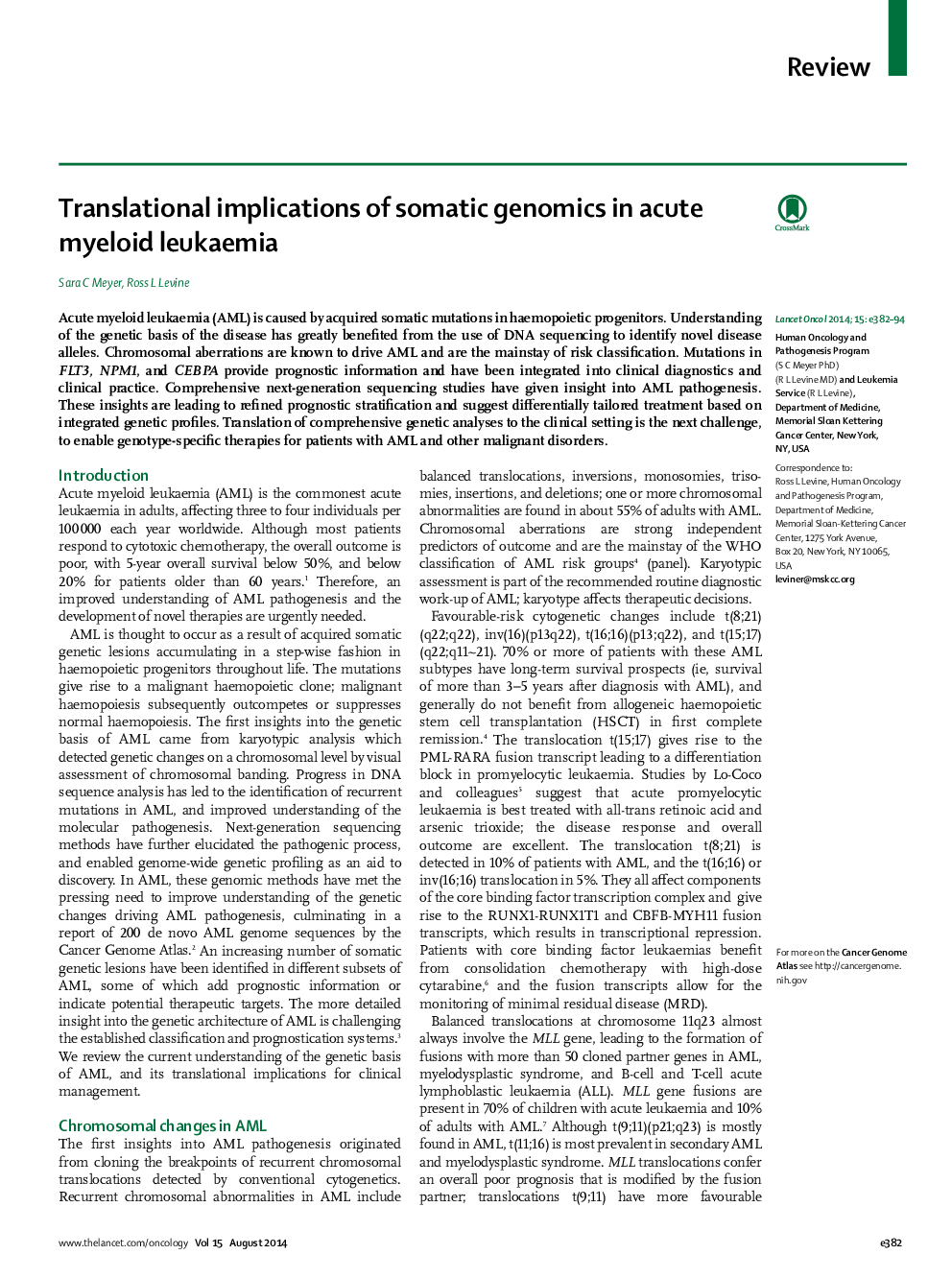| Article ID | Journal | Published Year | Pages | File Type |
|---|---|---|---|---|
| 3994320 | The Lancet Oncology | 2014 | 13 Pages |
SummaryAcute myeloid leukaemia (AML) is caused by acquired somatic mutations in haemopoietic progenitors. Understanding of the genetic basis of the disease has greatly benefited from the use of DNA sequencing to identify novel disease alleles. Chromosomal aberrations are known to drive AML and are the mainstay of risk classification. Mutations in FLT3, NPM1, and CEBPA provide prognostic information and have been integrated into clinical diagnostics and clinical practice. Comprehensive next-generation sequencing studies have given insight into AML pathogenesis. These insights are leading to refined prognostic stratification and suggest differentially tailored treatment based on integrated genetic profiles. Translation of comprehensive genetic analyses to the clinical setting is the next challenge, to enable genotype-specific therapies for patients with AML and other malignant disorders.
